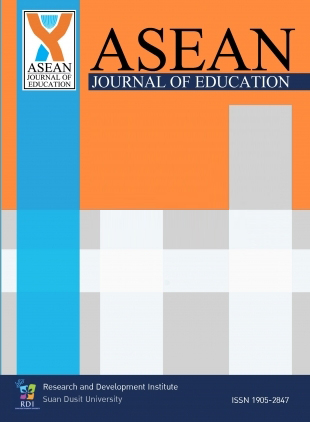Education Leaders, Research Scholars, and Expert Practitioners: Feedback of Employers and Immediate Heads of Educational Management Graduates
Keywords:
Education leaders, Research scholar, Expert practitioners, Feedback employees, Immediate heads, Educational management and graduatesAbstract
The institution under the present study desires to provide education leaders, research scholars, and innovative teachers with the values of truth, excellence, and service. The findings of the study strengthen the attributes of the graduates as education leaders. Based on the employer and immediate head feedback, graduates have possessed the capacity to provide directions of the institution, lead projects and committees, and provide accountability by demonstrating ethical, transformative, and equitable leadership. As research scholars, graduates have exhibited promising feedback, especially in an era when research is emphasized in informed decisionmaking and evidence-based practices, with a mean of 3.865. M.A. and Ph.D. graduates are equipped with the necessary skills needed to conceptualize, plan, and conduct academic inquiries anchored on practices and institutional agenda, with a mean of 3.841. M.A. and Ph.D. graduates are considered education leaders, with a mean of 3.84, who can link theory into practice, and actualize philosophical and theoretical underpinnings of the educational management program by highlighting intercultural competency, ethical leadership, and sensitivity and respect to various beliefs and ways of life.
References
Bruggencate, G., Luyten, H., Scheerens, J., & Sleegers, P. (2012). Modeling the influence of school leaders on student achievement. Educational Administration Quarterly, 48(4), 699–732.
Del Rosario, K. A., & Ancho, I. (2020). Unfolding of Filipino school leadership experiences in Doha, Qatar. Asian Journal of University Education, 16(1), 97.
Gines, A. C. (2014). Tracer study of PNU graduates. American International Journal of Contemporary Research, 4(3), 81-98.
Grace, G. (2005). School leadership: Beyond education management. London: Routledge Jenkins, B. (2008). ERIC - EJ823102 - What It Takes to Be an Instructional Leader, Principal, 2009. Retrieved June 13, 2021, from https://eric.ed.gov/?id=EJ823102
Mazurkiewicz, G. (2021). Educational leadership in times of crisis. Risks, 9(5), 90.
Okumbe, J. A. O. (1998). Educational Management: Theory and practice. Oxford: African Books Collective Ltd.,
Piot, L., & Kelchtermans, G. (2014). Le Leadership Dans les Organisations Scolaires Contemporaines: Leçons Tirées de la Revue de la Littérature Anglo-Saxonne. In M. Garant (ed.), Encadrement et Leadership: Nouvelles Pratiques en Éducation et Formation (pp. 21-37). Louvain-la-Neuve: Boeck Supérieur. https://doi.org/10.3917/dbu.letor.2014.01.002
Rosa, M. B. D., Eliane, G.,, Gomes B., & Muhammad, R. (2021). School management from the perspective of social transformations at work. SIASAT, 6(1), 53–58.
Schoorman, D. (2014). How should researchers act in the context of social injustice? Reflections on the role of the researcher as a social justice leader. In International handbook of educational leadership and social (In) Justice (pp. 217-232). Springer, Dordrecht.
Scutt, C.N. (2004), "Can management educators and scholars become effective managers? Can managers become effective management educators and scholars?", Management Decision, 42(3/4), 387-395.
Downloads
Published
How to Cite
Issue
Section
License

This work is licensed under a Creative Commons Attribution-NonCommercial-NoDerivatives 4.0 International License.
1 All articles will undergo a formal peer-review. A panel of experts from within or without the university will examine the article; approval from a minimum of two experts is required for publication. Revisions posed by the experts must be completed by the research prior to publication.
2 Once published in the ASEAN Journal of Education, the article becomes intellectual property of Suan Dusit University. Duplication, in full or part, requires permission from Suan Dusit University.
3 Excluding errors incurred during printing, author(s) are responsible for the content of their articles.






